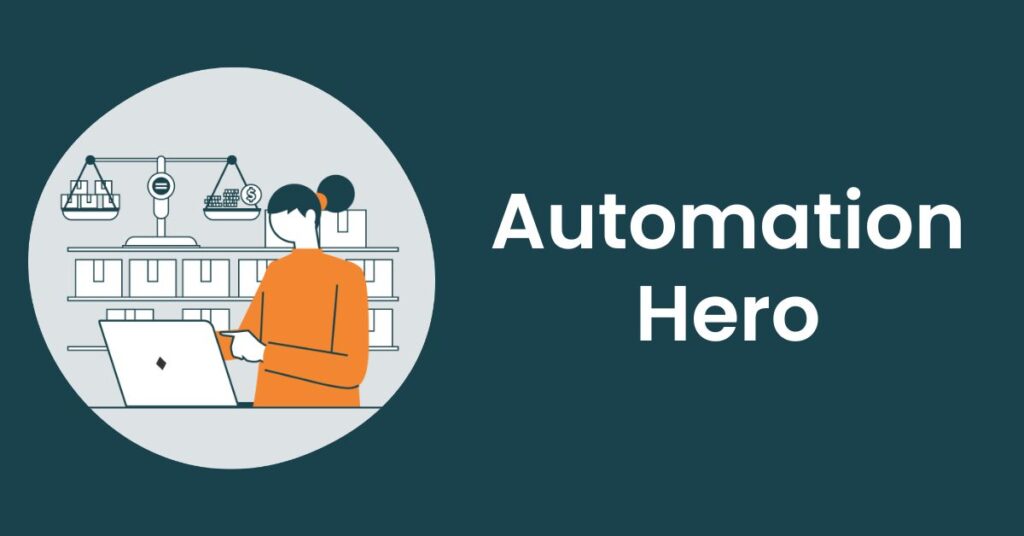


EazyStock’s Tanzania-based Partner Elsante Mnzava helps distributors in Africa become more competitive with automated processes
Congratulations on the award! Can you please tell us a little about yourself and the work you do Elsante?
Thank you for the award and I’d also like to thank customers and employees for really teeing-up this company for further growth and success!
A little bit about myself. Well, I’m an All-African – and in every sense of the term – even if I was born in California. My dearest and beloved late father was from Tanzania in East Africa, my dearest and beloved mother is from Sierra Leone in West Africa and I grew up in Zambia and attended secondary school in Swaziland – both in Southern Africa. So I am anchored to the continent in a unique way that I take every opportunity to boast about!
I founded Mkenga Group Limited in 2014, a company located in Tanzania and, through a subsidiary called BiasharaWorks, we drive the implementations of three mission-critical, enterprise-level productivity platforms for medium and large-sized businesses in Africa (we have or currently serve customers in Kenya, Uganda, Nigeria, Ghana, South Africa, Guinea, and Morocco, and unexpectedly, in the UAE).
As this month’s Automation Hero, you know how automation can benefit a business. What kinds of tasks have you helped your clients to automate?
EazyStock is one of the automation tools I see provide high value to my customers. The solution enables companies to better understand:
The ultimate goal is to maximise a company’s bottom line by minimising the incidence of stock outs and reducing or eliminating excess inventory.
So which types of tasks have we helped our clients automate? Many, but the most prominent one is helping them move away from using Excel where they used to attempt – and I stress “attempt” to calculate what to buy, when to buy and in what quantities. If we look at just one customer, Amex Auto Spares based in Nairobi, Kenya with five branches across the country, they have totally eliminated the use of Excel for planning and executing local purchases, which they were spending upwards of five hours a day on. Today, Amex Auto Spares’ local procurement staff spend considerably more time negotiating the best pricing with suppliers rather than trying to figure out what to buy!
How do tasks change when you implement automation solutions? What benefits do your clients see?
I’d say that many tasks disappear altogether! For example, using Excel to manually calculate buffer stock levels and re-order quantities.
Furthermore, the tasks which aren’t “automated away” so to speak tend to be those which are more strategic in nature. For example, when a procurement officer doesn’t have to spend five hours fiddling with calculations on Excel, he or she can now spend that much more time negotiating with a supplier or maybe even researching substitute products of better quality.
There are many benefits which accrue to our clients. But the core benefit, in my view, centres on our customers’ ability to use data generated from EazyStock to think more strategically about their inventory and procurement management functions with an eye towards driving greater profitability.
In your opinion, how aware is your market of the benefits of automation? How far have the companies you talk to typically come in their automation processes?
Interesting question. If you asked me this question five years ago, I’d have emphatically said that the awareness of the benefits of automation among African-owned or African-domiciled companies was very low. In fact, when we first started our business in 2014, the companies which bought our enterprise-level business management platforms where firms whose shareholders were based outside of Africa.
Today, however, most serious mid-sized and large businesses have jumped onto the automation bandwagon, or rather, at least they talk a lot about it and believe in its benefits. In fact, drive across Nairobi and you’ll see multiple adverts speaking to the value of “automating, streamlining and integrating your disparate business functions.” And to be sure, part of the driver of this is simply cost: platforms and the services they offer have become vastly more affordable over the last several years especially with the advent of the SaaS delivery model.
However, as much as companies in our region have come to recognise the importance of automation, the leap towards actually adopting automation tools is still comparatively slow, and really for one reason: the ability to pay in our region is comparatively low.
Now we know how you help others achieve their automation goals, what other kinds of automation tools do you use?
Currently, we drive the implementation of four automation-related platforms including EazyStock. My strategy for choosing to implement any platform is simple:
Where do you see the future of automation going?
Sounds like a simple question, but it’s actually not. Anyhow, I have some thoughts. First, automation will continue to change in tandem with the evolving needs of its users – regardless of industry. In addition, artificial intelligence will begin to feature heavily in solutions which drive automation.
Secondly, I believe that more complex activities that seemingly require higher levels of intelligence will be automated. Think about some of the tasks that are highly compensated, for example, CPA-certified accountants are expected to carry out balance sheet account reconciliations. Balance sheet reconciliation has now begun to be automated.
Thank you for your insight, Elsante!
Want to submit the Automation Hero in your life or become an Automation Hero yourself? Fill out our contact form to learn more!